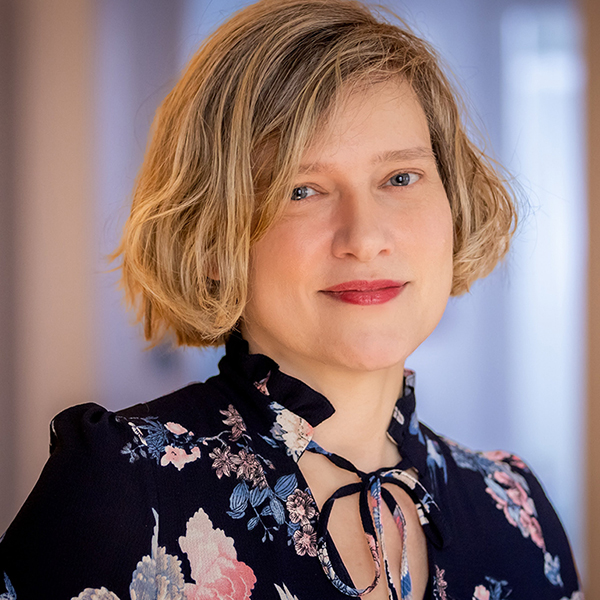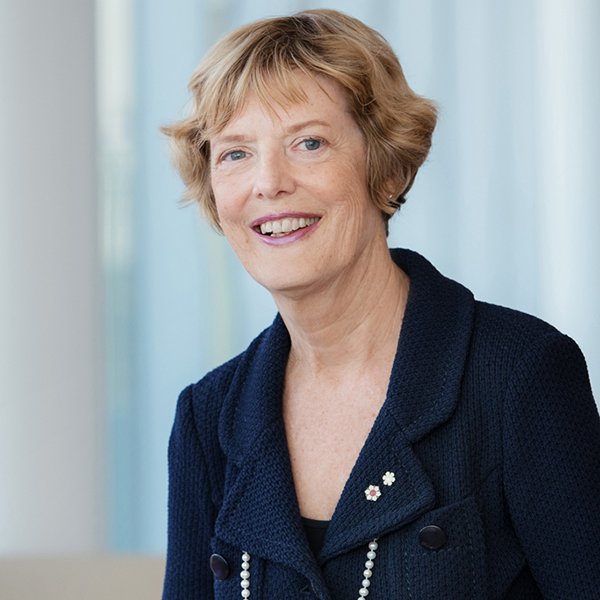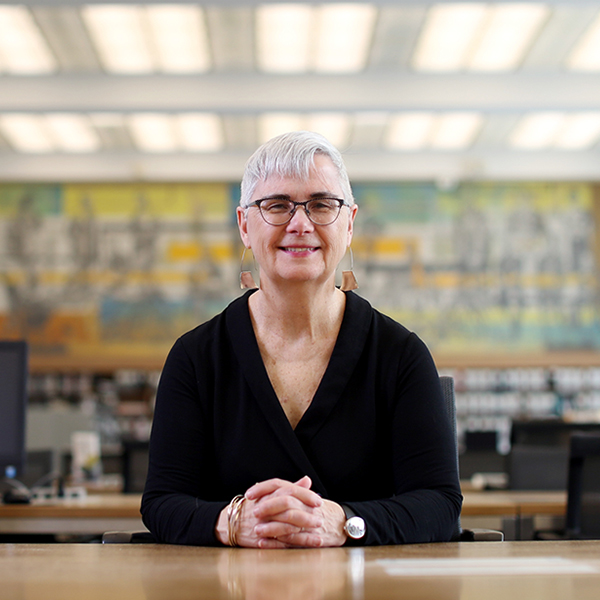It was in 1992 when Sally Armstrong, BEd’66, DLitt’02, heard about the camps. She had gone to Sarajevo during the Balkan conflict to cover how the war was impacting children. She was editor of Homemakers magazine at the time, and the 39-year-old Armstrong had gathered up her reporting material and was about to head home.
Then she caught wind of the rumours. It came in pieces, from increasingly reputable sources as the day wore on. The next day, she boarded her return flight to Canada saddled with the confirmation that rape camps existed across Yugoslavia where, by the end of the wars, between 20,000 and 40,000 women and girls had been repeatedly brutalized. One Croatian woman, Eva Penavic, told Armstrong her horror story as her young grandchildren played outside in nearby ruins.
It was before Rwanda and 24-hour news cycles, meaning such horrors were almost unheard of. Armstrong handed the material she had collected over to a large news agency that she believed could publish the story far faster than her magazine could. Seven weeks later, she called the agency editor to ask where the story was. He had forgotten.
“And I thought, 20,000 women were gang raped — some of them eight years old, some of them 80 years old — and you forgot?”
Her staff urged her to cover the story herself, even if it took three months’ lead time to prepare and print. “They said, ‘Don’t you get it? Nobody wants the story because it’s only about women.’ And that was when I had my Scarlett O’Hara moment and I thought, ‘If nobody’s going to do these stories, I’m going to do them.’ I went back, I did the story and I’ve been doing stories like that ever since.”
In the 27 years since that moment, Armstrong has devoted her life’s work to covering what happens to women and girls in conflict zones while the world looks away. She has been called “the war correspondent for the world’s women” for her efforts, receiving 10 honorary degrees and an armful of journalism prizes along the way. On September 25 in Whitehorse, she will begin a five city tour of Canada as the 2019 CBC Massey Lecturer, following in the footsteps of past Massey Lecturers like Martin Luther King, Noam Chomsky and Jane Jacobs.
Her lectures have already been collected and published in book form. Power Shift makes a strong case that women are noticeably and erroneously omitted from much of our history — right from the very start. Increasingly, contemporary scholars are challenging the old hunter/gatherer myths, believing that gender did not play a large role in determining who did what in humanity’s earliest communities. Stone Age cave paintings? Some experts now believe that many — if not most — were done by women.
Power Shift covers a lot of ground, from the formation of the patriarchy in the Agriculture Era, to the revelation that medieval nuns — and not just monks — played important roles in the production of sacred texts, to the recent rise of the #MeToo movement. Thanks to the success of recent films like The Imitation Game and Hidden Figures, notes Armstrong, movie audiences are discovering that women were talented Second World War code breakers and pioneering mathematicians during the early days of NASA.
Over the past year, Armstrong spent most of her days hunched over her keyboard for 10 hours a day, crunching thousands of years of women’s history and decades of her own stories into a digestible, five-chapter, 271-page book and five Massey lectures. She calls it the hardest assignment of her career.
But in many ways, it is also one of the most satisfying. “It was really exciting because the people I was interviewing, they wanted me to succeed. I felt like I was building a team,” she says, referring to the anthropologists, archaeologists, historians and other experts who guided her re-education. They were eager to share new information that could change the way future generations learn about women. “They brought my research alive. Now we know that Man the Hunter is bogus; there’s no evidence to say woman wasn’t hunting right beside him,” says Armstrong. “All these years we’ve based our assumptions about women on studies that just never included women.”
Power Shift is not merely a textbook on women’s untold history, however. Armstrong makes great pains to connect all those historical moments to today’s zeitgeist, an era where unfiltered access to social media has empowered women in entirely new ways. She is hopeful that the current fourth wave of feminism — a wave that hinges on intersectionality and strong personal will — will bring women closer to equality than they’ve ever gotten before. In Power Shift, Armstrong writes: “This [fourth] wave created hashtag feminism and put abusive powerful men on notice. And by all accounts, this one got liftoff.”
Just over a year ago, Armstrong received a Facebook message request. The grandchildren of Eva Penavic — the ones Armstrong taught to somersault and cartwheel around the ruins of war-torn Croatia 27 years ago — found her online and messaged her. “What they wanted to tell me was that the men who gang-raped Eva were never punished. They’re still walking around the streets,” she says.
Penavic’s story is a loop Armstrong feels compelled to close. Once the promotion demands around the Massey lectures and her book quiet down, she hopes to return to Croatia once more.
Then after that, who knows? I ask her if she intends to retire, or at least stop visiting conflict zones. Now in her mid-70s, Armstrong has toyed with the idea of retiring, but never quite gets there. “Why not active conflict zones? I mean, if it’s a story about women … You sound like my kids: ‘[Are you] going to quit now?’ I keep thinking, ‘Yes, that’s it, this is my last story.’ And then I go again; someone calls and says, ‘There’s this great story.’ OK, I’m at the airport.”
As part of the Massey Lectures, Sally Armstrong will read Chapter 4 of Power Shift: The Longest Revolution at Montreal’s Centaur Theatre on October 4.


